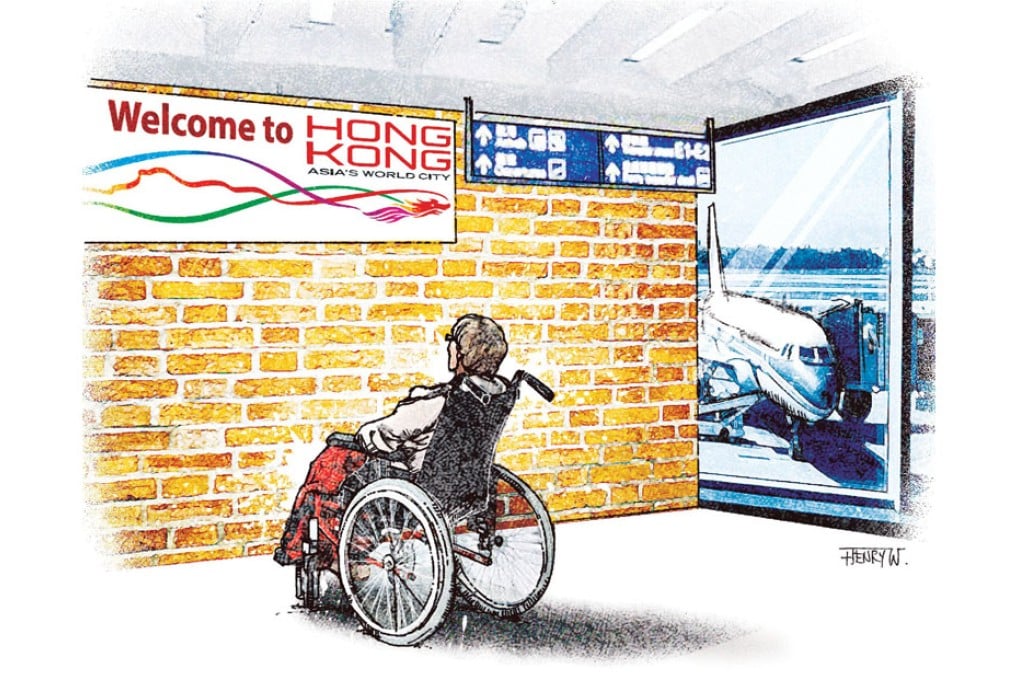Hong Kong has a long way to go on disabled rights and attitudes
Paul Letters says his personal experiences prove Hong Kong has a long way to go to catch up with the developed world on disabled rights, and a little awareness and understanding would surely help

Hong Kong is one of the most advanced places in the world, but not when it comes to disability. For example, from Central to Causeway Bay, skyscrapers packed with medical clinics lack entrances with ramps. This is so absurd it's almost amusing.
A world leader in disability rights, Britain has made it a legal requirement for public buildings to provide disabled parking and toilets since 1970. Here, even schools lack disabled parking and signage (so if there is a disabled entrance, you'd never know). Places that do have disabled toilets use them, at best, as smoking rooms and often as full-to-bursting store rooms; I've waited for toilets to be decluttered everywhere, from highly regarded restaurants such as Pacific Place's Domani to Hong Kong Stadium.
For work, I was once sent to an all-day conference in a building which greeted me and my wheelchair with a flight of steps and no disabled side-entrance. I'm a reluctant but regular recipient of the "sedan chair treatment" - where, due to a lack of elevators or stair lifts, teams of obliging security personnel carry me up a flight of steps, as they did adeptly at the recent Hong Kong Wine Festival. At this conference, there was no lift - and our room was on the fourth floor. So I turned around and headed home (from Central to Sai Kung). I'm not ashamed to admit I was tearful by the time I reached home.
Any flight of stairs without a wheelchair symbol and an arrow indicating a wheelchair entrance around the corner makes the statement "No Disabled People" - as plainly as some institutions in bygone Hong Kong had signs declaring "No Chinese".
This brings me to our recent family outing, one which was supposed to make up for lost time. We had tried to visit Ocean Park once before: we weren't going to let steep slopes stop us or my wheelchair. I say "us" but my disability restricts me to sitting pretty, so, two-year-old in tow, my wife did all the heaving up Ocean Park's hillside - until the impossibly steep slopes won.
But, with my new mobility scooter, what wasn't possible now is - or should be. My "Luggie" - so-called because it's designed to collapse into a small suitcase - is slimline and acutely manoeuvrable. So, on occasions where steps are avoidable (which, for example, discounts most shops throughout Hong Kong), it's possible to negotiate narrower pathways through offices and supermarkets than my mechanical wheelchair can manage.